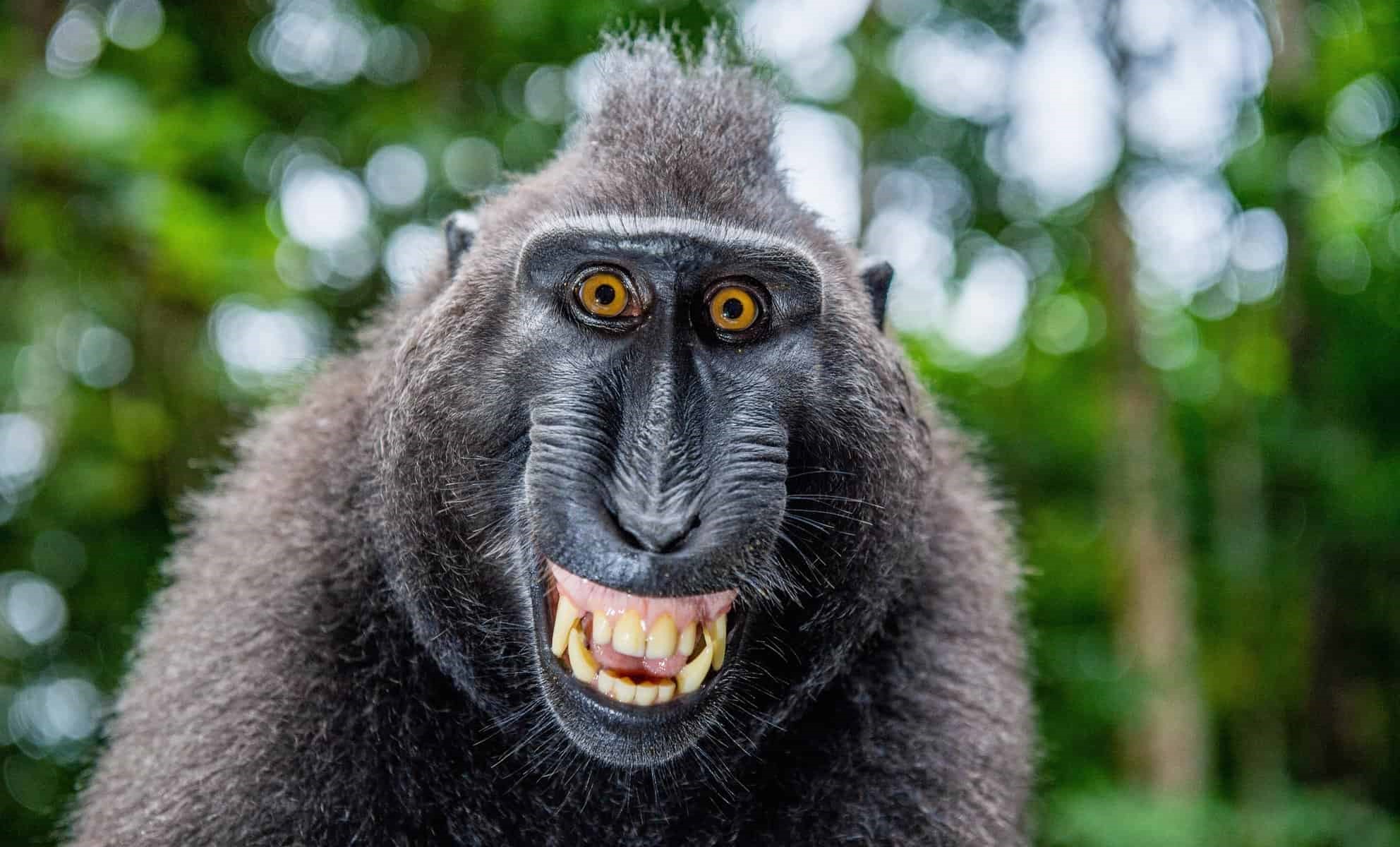
Macaques are a fascinating group of primates that have captured the interest of researchers, nature enthusiasts, and animal lovers alike. With their distinctive appearance, intelligent behavior, and diverse habitats, macaques have become the subject of numerous studies and have played a significant role in our understanding of primate evolution and social dynamics.
In this article, we will explore 19 fascinating facts about macaques, shedding light on their intriguing characteristics, habits, and adaptations. From their remarkable communication skills to their complex social structures, macaques continue to captivate our attention and provide insights into the complex world of primates.
Key Takeaways:
- Macaques are highly social, intelligent, and adaptable primates with diverse diets and impressive tool use. Their expressive faces and strong maternal bonds make them fascinating creatures to study and observe.
- Macaques’ unique behaviors, such as communal child-rearing and mischievous antics, highlight their complex social dynamics and playful nature. Conservation efforts are crucial to protect certain endangered species and their habitats.
Macaques are native to multiple regions
Macaques can be found in a wide range of habitats, including tropical rainforests, savannas, mountains, and even urban areas. They are native to parts of Asia, Africa, and Europe.
They are highly social animals
Macaques live in groups called troops, which can vary in size from a few individuals to several hundred. They engage in complex social interactions, grooming each other, playing, and communicating through a variety of vocalizations and facial expressions.
Macaques have a diverse diet
These primates are opportunistic omnivores, meaning they eat both plant matter and small animals. Their diet includes fruits, leaves, seeds, insects, birds’ eggs, and even small mammals.
Macaques are known for their cheek pouches
One distinctive feature of macaques is their cheek pouches, which allow them to store food temporarily while foraging. This adaptation enables them to collect and transport food more efficiently.
They are excellent swimmers
Macaques are strong swimmers and are often found near water sources. They enjoy bathing and use water as a means of cooling off and grooming.
Macaques have a wide range of vocalizations
From loud calls to soft coos, macaques have an extensive vocal repertoire. They use different vocalizations to communicate danger, establish dominance, and attract mates.
Some macaque species are known for their tool use
Certain macaque species have demonstrated impressive tool use. They have been observed using stones to crack open nuts, using sticks to extract insects from tree bark, and even using tools for self-grooming.
Macaques are highly intelligent
Studies have shown that macaques possess remarkable cognitive abilities, including problem-solving, self-recognition, and social learning. They have been used extensively in scientific research to gain insights into primate intelligence.
The macaque brain is similar to the human brain
Research has revealed that the brain structure of macaques bears significant similarities to the human brain. This similarity has made macaques valuable models for studying neurobiology and advancing our understanding of human brain function.
Macaques have intricate grooming rituals
Grooming plays a crucial role in macaque social dynamics. It helps strengthen social bonds, remove parasites, and maintain hygiene within the troop. Macaques engage in reciprocal grooming, with individuals taking turns grooming each other.
They have a strict social hierarchy
Macaque troops have a well-defined social structure with dominant and subordinate individuals. Higher-ranking macaques enjoy better access to resources and increased reproductive success.
Macaques are known for their expressive faces
These primates have highly expressive faces, capable of conveying a wide range of emotions. From threatening grimaces to friendly smiles, their facial expressions play a crucial role in social interactions.
Macaques have a long lifespan
On average, macaques can live up to 25 years in the wild, while those in captivity have been known to live even longer. Proper nutrition, low predation rates, and a stable social environment contribute to their longevity.
They have adapted to various climates
Due to their wide distribution, macaques have developed adaptations to different climates. Some species have thick coats to withstand colder regions, while others have lighter fur for warmer climates.
Macaques have strong maternal bonds
Female macaques form strong bonds with their offspring and play a vital role in their development and care. They provide protection, nourishment, and teach vital survival skills to their young.
Macaques are known to be mischievous
These playful primates are notorious for their mischievous behavior. They can be seen stealing food, exploring, and engaging in playful antics within their troops.
Some macaque species are endangered
While macaques, in general, are not endangered, certain species are facing threats due to human activity, deforestation, and illegal wildlife trade. Conservation efforts are focused on protecting their habitats and raising awareness about their importance in ecosystems.
Macaques are skilled climbers
With their strong limbs and flexible bodies, macaques are excellent climbers. They spend a significant amount of time in trees, foraging for food and seeking shelter.
Macaques engage in communal child-rearing
Within a macaque troop, several females may take turns caring for and nursing offspring, creating a communal system of child-rearing. This behavior helps build social bonds and allows the mothers to have breaks to forage or rest.
As you can see, macaques are fascinating creatures with a rich variety of behaviors and adaptations. Their social dynamics, intelligence, and ability to thrive in different environments make them truly remarkable primates.
Conclusion
The macaque is a fascinating member of the primate family, known for its intelligence, adaptability, and unique social behaviors. With over 19 different species spread across various habitats, macaques have captured the attention of researchers and animal enthusiasts alike.From their impressive problem-solving abilities to their complex social structures, macaques have proven themselves to be highly adaptable creatures. They have learned to coexist with humans in urban areas and have even been observed using tools to enhance their survival strategies.Despite their adaptability, macaques face numerous challenges, including habitat loss, poaching, and conflicts with humans. Conservation efforts are crucial to ensure the long-term survival of these remarkable animals.By delving into the world of macaques and understanding their fascinating traits, behaviors, and needs, we can contribute to their conservation and appreciate the diversity and marvel of the animal kingdom.
FAQs
1. What is a macaque?
A macaque is a type of primate that belongs to the Old World monkey family. They are known for their intelligence, agility, and highly social nature.
2. Where do macaques live?
Macaques are found in various habitats across Asia, including forests, mountains, grasslands, and even urban areas.
3. What do macaques eat?
Macaques have a varied diet consisting of fruits, leaves, seeds, insects, and even small mammals or birds.
4. Are macaques endangered?
While certain species of macaques are classified as endangered due to habitat loss and poaching, not all of them are facing the same level of threat.
5. Do macaques have any predators?
Yes, macaques have a few natural predators, including large carnivores like leopards, tigers, and pythons.
6. Can macaques swim?
Yes, most macaque species are capable of swimming, and they are often found near water bodies.
7. Are macaques kept as pets?
In some regions, macaques are illegally captured and kept as pets. However, this practice is highly discouraged as it can harm both the individual animals and their populations in the wild.
8. Do macaques form social groups?
Yes, macaques are highly social animals and live in groups of various sizes, ranging from a few individuals to troops of several hundred.
9. Can macaques communicate with each other?
Yes, macaques communicate using various vocalizations, body language, and facial expressions to convey information within their social groups.
10. How long do macaques live?
The lifespan of macaques varies depending on the species, but they can live up to 25-30 years in the wild.
Macaques, fascinating creatures, share many traits with other mammals and primates. Their behaviors and adaptations offer insights into the incredible diversity of life on Earth. Exploring the world of mammals reveals a wealth of knowledge about these remarkable animals. Conservation efforts play a crucial role in protecting macaques and other species, ensuring their survival for generations to come. Delving into primate evolution uncovers the intricate connections between macaques and their relatives, shedding light on the complex history of these captivating creatures.
Was this page helpful?
Our commitment to delivering trustworthy and engaging content is at the heart of what we do. Each fact on our site is contributed by real users like you, bringing a wealth of diverse insights and information. To ensure the highest standards of accuracy and reliability, our dedicated editors meticulously review each submission. This process guarantees that the facts we share are not only fascinating but also credible. Trust in our commitment to quality and authenticity as you explore and learn with us.


